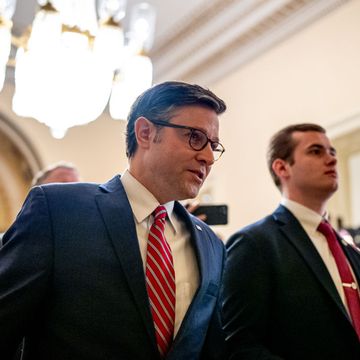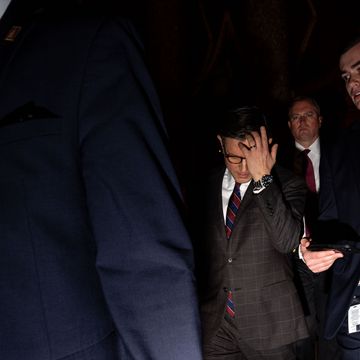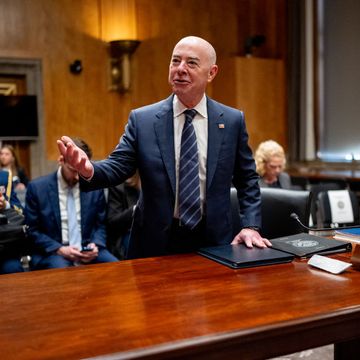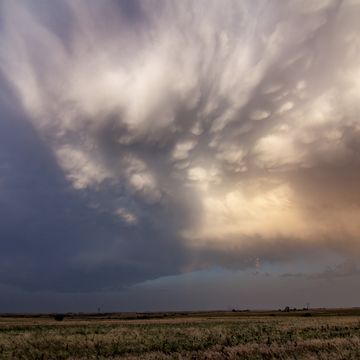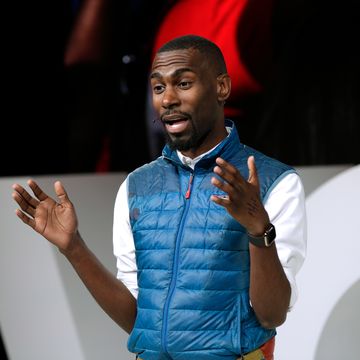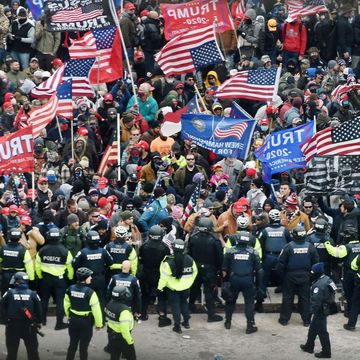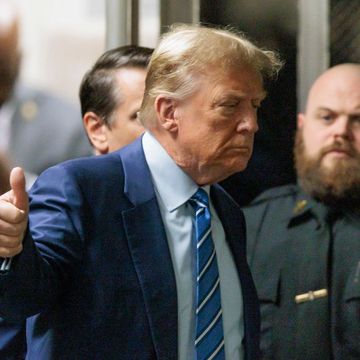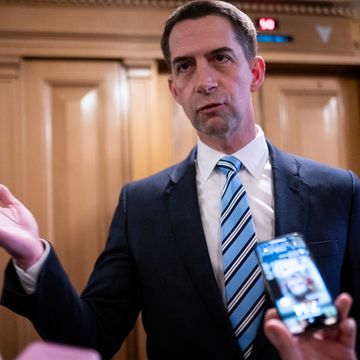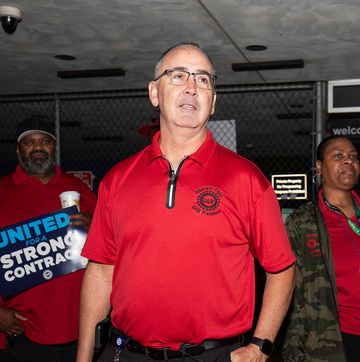Leonard Cohen, that magnificent Canadian Buddhist Jew, once defined a saint this way: "A saint does not dissolve the chaos; if he did, the world would have changed long ago... It is a kind of balance that is his glory. He rides the drifts like an escaped ski." By Cohen's definition, the closest thing that American men have to a patron saint right now is Clint Eastwood. This magazine recently commissioned a survey of twenty- and fifty-year-old American men, and when asked to name the coolest man in the country, both groups chose Eastwood by a wide margin. The guys born in 1960, the ones who grew up growling, "Feeling lucky, punk?" to their friends, make sense, but the ones born in 1990? How did they end up picking the old guy from Space Cowboys over Clooney and LeBron? The answer is simple, really: During all the real and imagined crises of American masculinity that the past half century has coughed onto our screens, Eastwood has been the one stable figure in the midst of the darkness and the turmoil, a man entirely apart from the boring and draining established types that have dominated movies for four decades macho pigs (see: Burt Reynolds, Gerard Butler), lovable schmucks (see: Woody Allen, Michael Cera), merry pranksters (see: Chevy Chase, Adam Sandler), and impossibly cool hipsters (see: Steve McQueen, Brad Pitt). Eastwood's endurance is the endurance of saints, and what he embodies more than anything is the definitive virtue for American men both then and now: restraint. He rides the line between his own terrible desires and the world as it is with the grace we all aspire to.
This month, his thirty-first film as a director, Hereafter, arrives in theaters, and, being about life after death, it invites retrospectives on the man. It is incredible to me that Eastwood has been defined throughout his career as an icon of macho. Macho is a preening pose assumed by men who aren't sure they're men and who compensate by needing more, having more, showing more (did anyone see The Expendables?). The explosion of beefcake action movies in the eighties Schwarzenegger and his gym buddies coincided neatly with the mass entry of women into the workplace: classic overcompensation. But Eastwood has never needed to compensate for anything. Manhood, for Eastwood, has always been about needing and having and showing less. His gift as an actor and director is his economy of motion and expression; his moral vision is of men who struggle with and eventually master their bloodlust and lust and their desire for booze and self-degradation. At the beginning of his career, in his classic spaghetti westerns (The Good, the Bad and the Ugly), he combined two classic American types the hard-boiled agent from the crime fiction of Dashiell Hammett and Raymond Chandler and the lonesome cowboy from the long-established western and created characters who dominated through their utter self-possession. You could fire a gun at their faces and they wouldn't even flinch. A little later, Dirty Harry, while somewhat fascistic, was attuned to the urban hellholes of the seventies, the definitive fantasy of control over the uncontrollable. And Unforgiven, the masterpiece that set up Eastwood's late career, is the greatest film ever made about the mastery of the violence within. His more recent films grapple with control over fame (Flags of Our Fathers), racism (Gran Torino), the impulse for revenge (Mystic River), and now, in Hereafter, life after death.
Eastwood's endurance is one of the rare phenomena that make me genuinely hopeful about men. It's not just that he proves that you can be awesome when you're eighty. He proves that it's possible to be open-minded and creative and daring and still hold on to the old virtues. Unlike his career contemporaries, many of whom dabble in conscious self-parody or unconscious self-parody or the occasional voice-over job, Eastwood has gone only bigger and wider and stranger and better, conquering a dizzying breadth of material: female boxers, World War II veterans, South African rugby players, racist mechanics. And that's just the past six years. Self-control defines his off-screen persona as well as his movies. He appears only in films he directs and stays more or less entirely outside the celebrity-industrial complex, with its necessary surrender of control. Eastwood remains, against all odds, his own man.
And now that we are supposedly entering the next crisis of masculinity this time the world doesn't need men because we can't listen, we can't sit still in kindergarten, and so all society will shortly be a massive gynocracy in which men's primary role will be as the problem children of successful mothers and wives we need Eastwood more than ever. Whatever else has changed over the past fifty years, self-mastery and control over our lives are still what we want more than anything. My favorite Eastwood film and I'm not joking is the orangutan movie, Every Which Way But Loose, from 1978; it was demolished by critics but remains one of his highest-grossing movies ever. A man tied to an ape, driving across America, brawling for money, looking for love. If this film had been made by a French or Serbian director, it would have been hailed as an absurdist parable about how to live well with brute desires in a brutal world. At one point, a woman asks Eastwood's character why he fought so hard and risked so much for the ape, and the answer sounds like a rallying cry for men everywhere: "I really hated to see him in that cage." And in the end, the ape is free.
PLUS /// Clint Eastwood: What I've Learned >>




